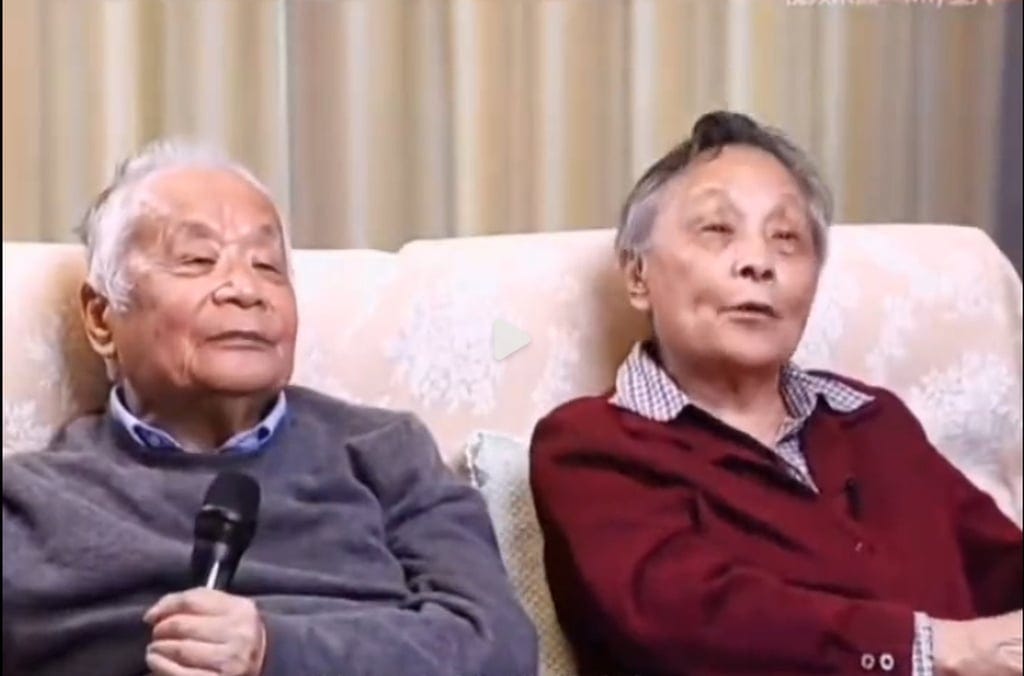These two Chinese scientists are under fire for speaking there minds!
Chinese Bloggers Warned About Silencing Scientists

Prominent Chinese scientists, including physicist He Zuoxiu and mathematician Yau Shing-Tung, have become the targets of fierce online criticism. The attacks, often fueled by nationalist sentiments, have drawn warnings from state-affiliated media about the potential harm this trend could inflict on China’s scientific and technological progress.
Nationalism vs. Scientific Dialogue
In recent years, China has celebrated remarkable achievements in science and technology, from 5G networks to high-speed trains. This success has bolstered national pride, but it has also emboldened some online communities to aggressively police opinions that they perceive as unpatriotic.
The trend has seen scientists attacked for expressing concerns about China’s research capabilities or for pointing out gaps compared to other nations. These criticisms are often dismissed by bloggers as “pro-American” or as undermining China’s progress. However, as an editorial by The Paper, a state-run media outlet, pointed out, this overconfidence risks hindering future innovation.
“We should have confidence but not be overconfident. Scientists must feel free to share their opinions,” the editorial stated, warning that shutting down differing views could harm the very sector these bloggers aim to protect.
High-Profile Targets
He Zuoxiu, a respected 97-year-old physicist, recently faced backlash after he and his wife, Qing Chengrui, both members of the Chinese Academy of Sciences, remarked that China still lags behind the U.S. and Germany in basic research. They noted that “much of the advanced medical equipment used in Chinese hospitals is imported”.
The couple’s comments were widely shared on social media, where bloggers accused them of being out of touch with reality and unpatriotic.
Similarly, Yau Shing-Tung, a Fields Medal-winning mathematician and director of the Yau Mathematical Sciences Center at Tsinghua University, was criticized after a speech earlier this year. In his remarks, Yau suggested that China’s mathematics research had not yet reached the level of the U.S. in the 1940s. His comments, intended as constructive criticism, sparked accusations that he was downplaying China’s accomplishments and overly praising the U.S.
Criticism of former Huawei scientist
The attacks have not been limited to academia. Sun Ninghui, a computer scientist with the Chinese Academy of Sciences, also faced harsh criticism after publicly questioning Huawei’s dominance in China’s tech industry.
Speaking at a forum in Beijing, Sun argued that Huawei’s business model—controlling much of the supply chain—stifles competition and innovation. “We can’t fight Western monopolies by creating our own,” he said.
Huawei, seen as a symbol of national pride for weathering U.S. sanctions, enjoys strong public support. Many online commenters accused Sun of ulterior motives, further intensifying the debate.
A Call for Balance
China’s leadership has emphasized the importance of innovation, with President Xi Jinping repeatedly calling for science and technology to lead the country’s modernization. While state media continues to highlight China’s achievements, The Paper urged caution, stressing the need for sober reflection and open dialogue.
“Fandom culture is worryingly infiltrating discussions of scientific topics,” the editorial warned. It added that extreme expressions of nationalism could harm the reputations of scientists and hinder progress in the tech sector.
The article concluded with a plea for measured confidence. While China’s scientific achievements deserve celebration, addressing its challenges openly is essential for continued growth. The message to the online community is clear: shouting down dissent may win likes and views, but it won’t build a stronger future.



